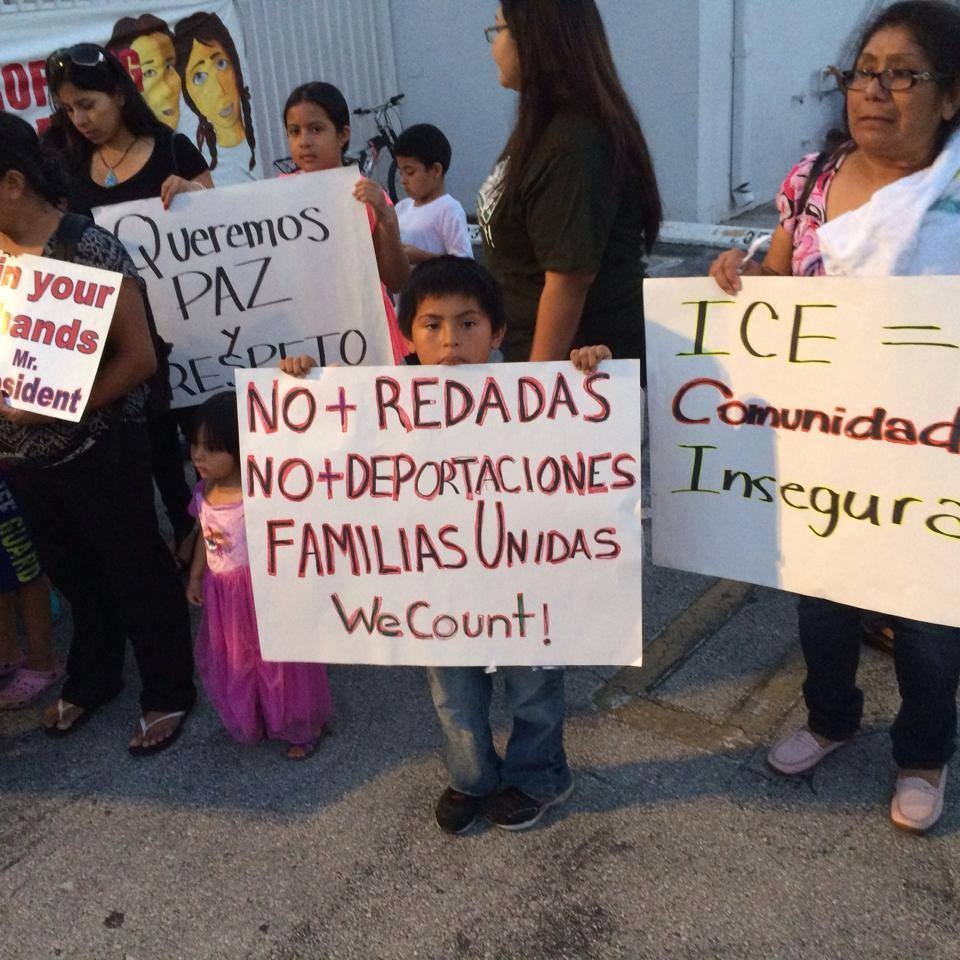VOICES: The South says not one more deportation

By Mónica Hernández and Dani Moore
Last month the Obama administration reached a shameful milestone -- the deportation of 2 million people.
The Southeast is disproportionately impacted by the policies driving these deportations, in large part because so many localities in our region have embraced harsh federal immigration enforcement programs. They include 287(g), which allows local law enforcement officers to enforce immigration law, and the so-called "Secure Communities" program designed to identify people in U.S. jails who are deportable under immigration law.
In addition, Southeastern states have passed some of the harshest anti-immigrant laws in the country, under the pretext that the federal government is not doing enough to control illegal immigration. In 2011, for example, Alabama passed HB 56, considered the nation's most draconian anti-immigrant measure. Modeled after Arizona's notorious SB 1070, Alabama's law created a wave of panic in the immigrant community, leading many immigrant families to flee the state.
Consequently, while deportations nationally increased more than 200 percent between fiscal years 2005 and 2011, the increase was significantly higher in the South: more than 400 percent in the Immigration and Customs Enforcement New Orleans district covering Alabama, Arkansas, Louisiana, Mississippi and Tennessee, and over 550 percent in the ICE Atlanta district covering Georgia, North Carolina and South Carolina.
Much more than an alarming statistic, the unprecedented number of deportations represents the millions of individuals who have been torn apart from their families and their communities by this inhumane policy -- mothers like Yolanda Zavala, whose son Sergio came with her to the United States from Mexico at the age of 5. Sergio was detained and put into the deportation process a week after he had turned 18 for driving without a license. He was among the first 27 immigrants in Wake County, NC who were deported through the 287(g) program.
"He spent four months in jail, I visited him every day until he was sent to Atlanta and eventually deported to a country he did not know," said Yolanda. "It is very hard for a mother to see her son behind bars when he had done nothing wrong."
With a woefully punitive and inadequate immigration reform bill stalled in Congress, and with House leadership only willing to pass legislation that would further criminalize communities, immigrant leaders across the South are intensifying their pressure on President Obama, calling on him to use his executive authority to take immediate action to suspend deportations and offer a program that would allow people to come forward, identify themselves and apply to live and work in the US without the constant threat of deportation.
On March 24, 100 immigrant leaders and allies from the Alabama Coalition for Immigrant Justice rallied around seven protesters who chained themselves to the entrance of the Etowah County Detention Center in Gadsden, AL to highlight the devastating impact of deportations on that state's immigrant community.
“We want to show our communities, other Alabamians and our local, state and national politicians that we are not afraid, that HB 56 did not defeat us and that more than ever we stand strong in defense of our dignity and our families,” said Evelyn Servin, ACIJ organizer and one of the seven arrested.
Last month, as part of the Not One More Deportation National Day of Action spearheaded by the National Day Laborer Organizing Network, Zavala and her group, Comité Popular Somos Raleigh, organized a rally in North Carolina's capital. Immigrant communities in the South also organized actions in Birmingham, Alabama; Homestead and Miami, Florida; Atlanta; New Orleans; Asheville and Charlotte, North Carolina; Knoxville, Nashville and Memphis, Tennessee; Dallas, Conroy and Houston, Texas, and Harrisonburg and Richmond, Virginia. We will continue supporting these organizations as they intensify their calls to President Obama and the White House to grant immediate relief so that members of our communities can live and work and continue contributing to our country without fear of deportation.
Every day that goes by, more than 1,000 immigrants are separated from their families and communities because of deportations. The current status quo has reached a crisis point and is unacceptable. Those of us who work for immigrant justice in the South must act -- to do otherwise would mean accepting and being complicit in this moral crisis. Instead, we must take steps to transform our immigration system, to reduce family separation, to prevent discrimination and racial profiling, and to build healthier and more prosperous communities across the South.
We hope you will join us by getting more involved in the Not1More Deportation campaign and sending a message to President Obama at this link:
thesouthsaysnot1more.wordpress.com/2014/05/01/join-us/
* * *
Mónica Hernández is the regional coordinator of the Southeast Immigrant Rights Network. Dani Moore is part of a team advancing immigrants' rights at the North Carolina Justice Center, a statewide nonprofit working for opportunity and prosperity for all.
